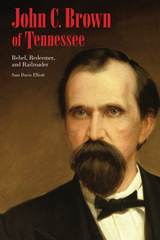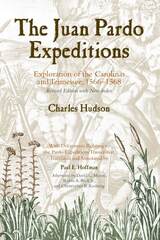4 start with J start with J

In this riveting memoir, Cohen takes the reader from the union hall and factory gates to the bargaining table and courtroom, and ultimately to the picket line. We see him winning the trust of disillusioned union members, negotiating with a hostile employer and its high-powered legal counsel, and hitting the pavement with leaflets and union cards in hand. We get to know the millworkers with whom he formed close bonds, including a stormy romance with a young woman at the plant. His up-close account of the struggle brims with telling descriptions of the negotiating process, the grinding work at the textile mill, the lives of its employees outside the workplace, and the grim realities of union busting in America. When the organizer’s four-year-old daughter accompanies him to the field, a unique an unexpected dimension is added to the chronicle.
A compelling, dramatic story that alternated between major triumphs and frustrating setbacks, The Jackson Project provides a rare look at the labor movement in the American South from an insider’s perspective.

John Calvin Brown was a Confederate general, Tennessee politician, railroad executive, and lawyer, and yet he is little known to today’s Americans. He left behind few personal papers and died relatively young despite his remarkably productive life, leaving his voice silent while historical debate raged over events in which he was a significant player.
John C. Brown of Tennessee is the first full-scale biography of this understudied figure. Author Sam Davis Elliott’s comprehensive research reveals how Brown rose to the rank of general in the Confederate Army of Tennessee. A five-time wounded veteran of nearly every one of the army’s battles from Fort Donelson to Franklin, Brown played a unique utility role as a division commander in the 1864 Atlanta Campaign. There is a substantial likelihood he was an early leader of the Ku Klux Klan after the war, but more well-established is his role as leader in the anti-Brownlow movement that sought to end Radical Reconstruction in Tennessee. He was selected president of the 1870 constitutional convention, which helped lead to his election as governor later that year. After his tumultuous time as governor seeking to resolve economic conflicts that began before the Civil War, he became a railroad executive and industrialist. He had a significant role in the struggle between rival financiers for control of the southern route to the Pacific, and was in the front lines of management on behalf of the Texas and Pacific Railroad during the Great Southwest Railroad Strike of 1886. His wide-ranging and successful career reflects not only the attributes of Brown’s character, but provides insight into many key events of nineteenth-century America.
John C. Brown of Tennessee fills not only a biographical but a historiographical gap in the literature on the Civil War and Reconstruction in Tennessee and the post-Confederate South.

John Calvin Brown was a Confederate general, Tennessee politician, railroad executive, and lawyer, and yet he is little known to today’s Americans. He left behind few personal papers and died relatively young despite his remarkably productive life, leaving his voice silent while historical debate raged over events in which he was a significant player.
John C. Brown of Tennessee is the first full-scale biography of this understudied figure. Author Sam Davis Elliott’s comprehensive research reveals how Brown rose to the rank of general in the Confederate Army of Tennessee. A five-time wounded veteran of nearly every one of the army’s battles from Fort Donelson to Franklin, Brown played a unique utility role as a division commander in the 1864 Atlanta Campaign. There is a substantial likelihood he was an early leader of the Ku Klux Klan after the war, but more well-established is his role as leader in the anti-Brownlow movement that sought to end Radical Reconstruction in Tennessee. He was selected president of the 1870 constitutional convention, which helped lead to his election as governor later that year. After his tumultuous time as governor seeking to resolve economic conflicts that began before the Civil War, he became a railroad executive and industrialist. He had a significant role in the struggle between rival financiers for control of the southern route to the Pacific, and was in the front lines of management on behalf of the Texas and Pacific Railroad during the Great Southwest Railroad Strike of 1886. His wide-ranging and successful career reflects not only the attributes of Brown’s character, but provides insight into many key events of nineteenth-century America.
John C. Brown of Tennessee fills not only a biographical but a historiographical gap in the literature on the Civil War and Reconstruction in Tennessee and the post-Confederate South.

READERS
Browse our collection.
PUBLISHERS
See BiblioVault's publisher services.
STUDENT SERVICES
Files for college accessibility offices.
UChicago Accessibility Resources
home | accessibility | search | about | contact us
BiblioVault ® 2001 - 2024
The University of Chicago Press









